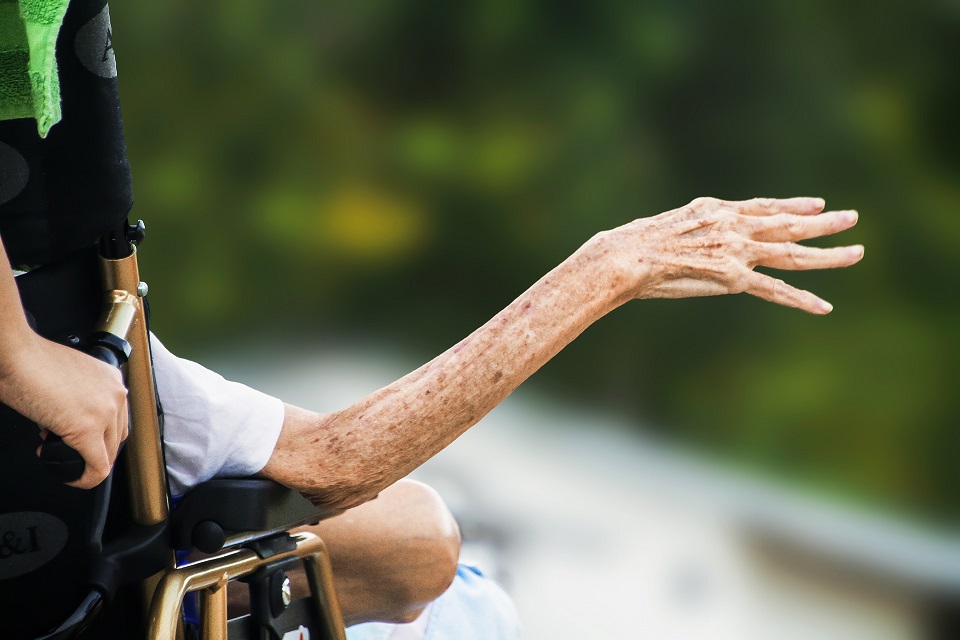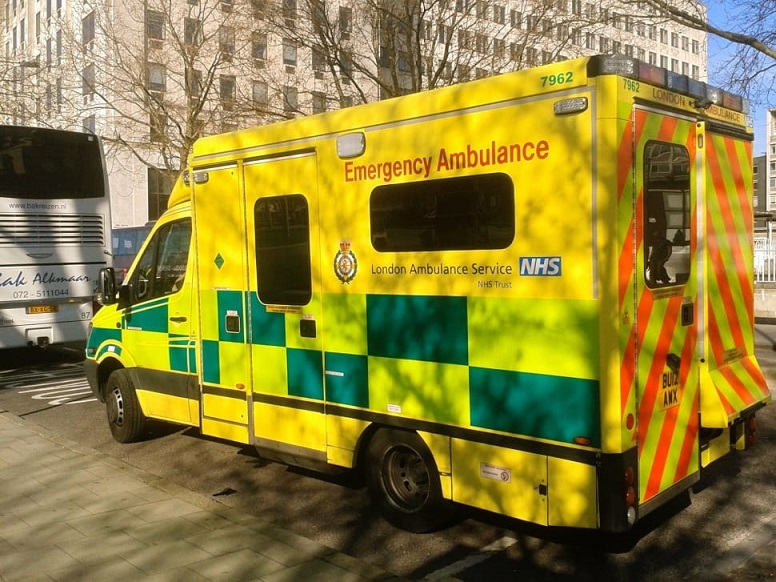Chronically ill and disabled people are gathering outside parliament on Wednesday 8 March, to protest over the NHS treatment of people living with myalgic encephalomyelitis (ME, also known as chronic fatigue syndrome, CFS).
 Steve Topple / The Chronic Collaboration
Steve Topple / The Chronic Collaboration
The illness has hit the headlines recently. Two women who live with severe ME are seriously ill in NHS hospitals.
Family members have questioned the NHS’s care of Sami Berry and Alice Barrett – both of whom are, according to relatives, starving to death due to doctors’ inability and/or refusal to treat their illnesses properly.
Moreover, three women who lived with ME have also died since Christmas 2022 – raising further questions about how the NHS is caring for these patients.
The situations underscore the historical treatment of people living with ME. Medical professionals have systematically disbelieved and stigmatised them, given them incorrect treatment, or told them it’s ‘all in their heads’. Because there is still no official cause of ME, and therefore no official effective treatment, doctors often view the disease as part-psychosomatic.
This attitude became entrenched after a 2011 study into treatments for ME called the PACE trial – which the National Institute for Clinical Excellence (NICE) adopted into its guidelines. However, after several re-evaluations the study was found to be flawed.
 Following pressure from patients, doctors, and advocates, including a protest by campaign group the Chronic Collaboration, NICE partly-removed these harmful treatments in November 2021.
Following pressure from patients, doctors, and advocates, including a protest by campaign group the Chronic Collaboration, NICE partly-removed these harmful treatments in November 2021.
However, since then on the frontline of medicine little has changed – as Sami and Alice’s cases show.
The end-result of medical professionals’ archaic approach can be disastrous for patients and their families. So, the Chronic Collaboration is calling for politicians, government and civil servants to act.
On Wednesday 8 March, the group, along with chronically ill and disabled people and their allies, will meet at Old Palace Yard, Westminster, at 12:30pm. They have three demands:
- That the APPG on ME urgently convene a meeting to draw-up advice to MPs on how to intervene on behalf of severe me patients.
- That the health and social care select committee urgently conducts an inquiry into the treatment by the NHS of all post-viral illnesses (including long Covid and ME) and their associated conditions (for example, POTS, gastroparesis, craniocervical instability).
- That the Department for Health and Social Care urgently conducts a review into NHS England, Health Education England and the General Medical Council’s implementation of the NICE guidelines on ME – particularly regarding severe ME.
 The group said in a statement:
The group said in a statement:
“Sami’s, Alice’s and other ME patient’s stories point to systemic failings within the NHS. With people dying, others seriously ill in hospital, and anecdotal reports of the NICE guidelines not being properly followed – we cannot stand by and not do anything.
The Chronic Collaboration hopes that by applying pressure to those in power, urgent action can be taken to prevent any more deaths or serious harm being caused to people with ME. It said:
“It might seem inexplicable to some that, after NICE’s new guidelines, the NHS would still dangerously neglect people living with ME. However, that is the reality – and the situation seems to have worsened. There needs to be targeted action to bring this to the attention of people who may make change: politicians, civil servants and government. The community needs to look to those that can fight and allies that can support it”.
The protest will hear from patients, MPs, doctors, and others affected by ME. The group will also hand its demands into parliament itself and the DHSC.
More information: hello@thechroniccollaboration.com
(Photos: Pixabay)












.jpg)












